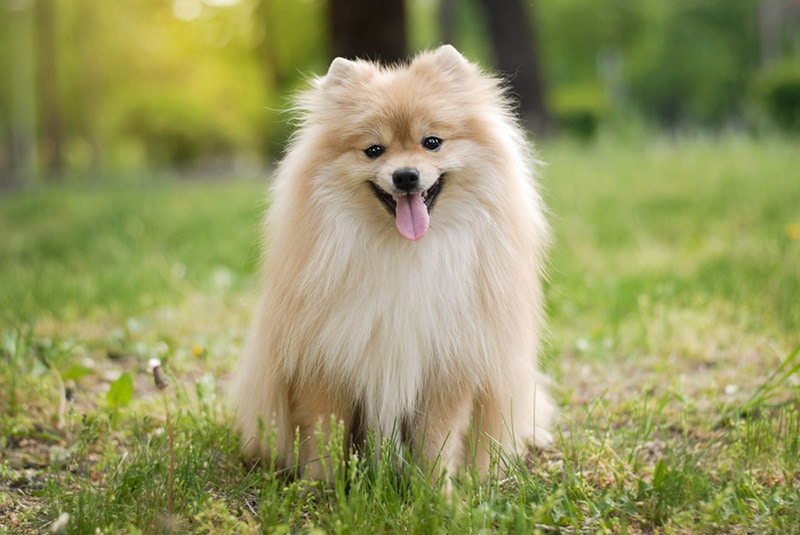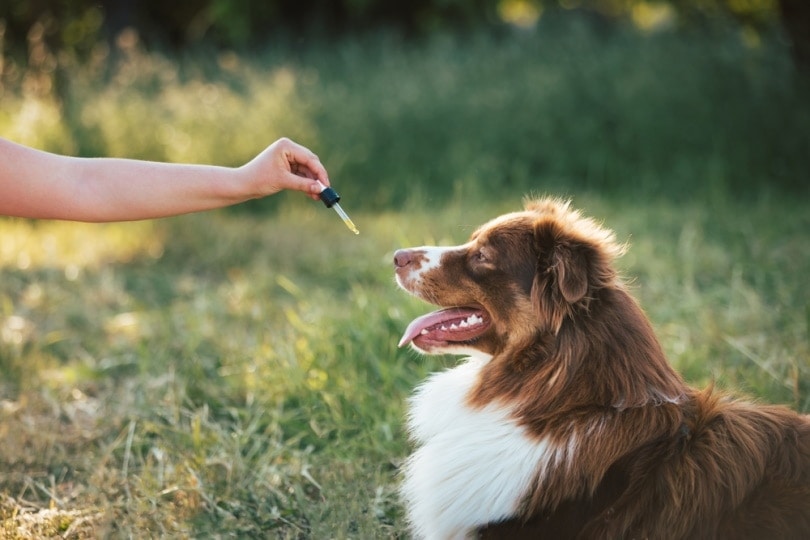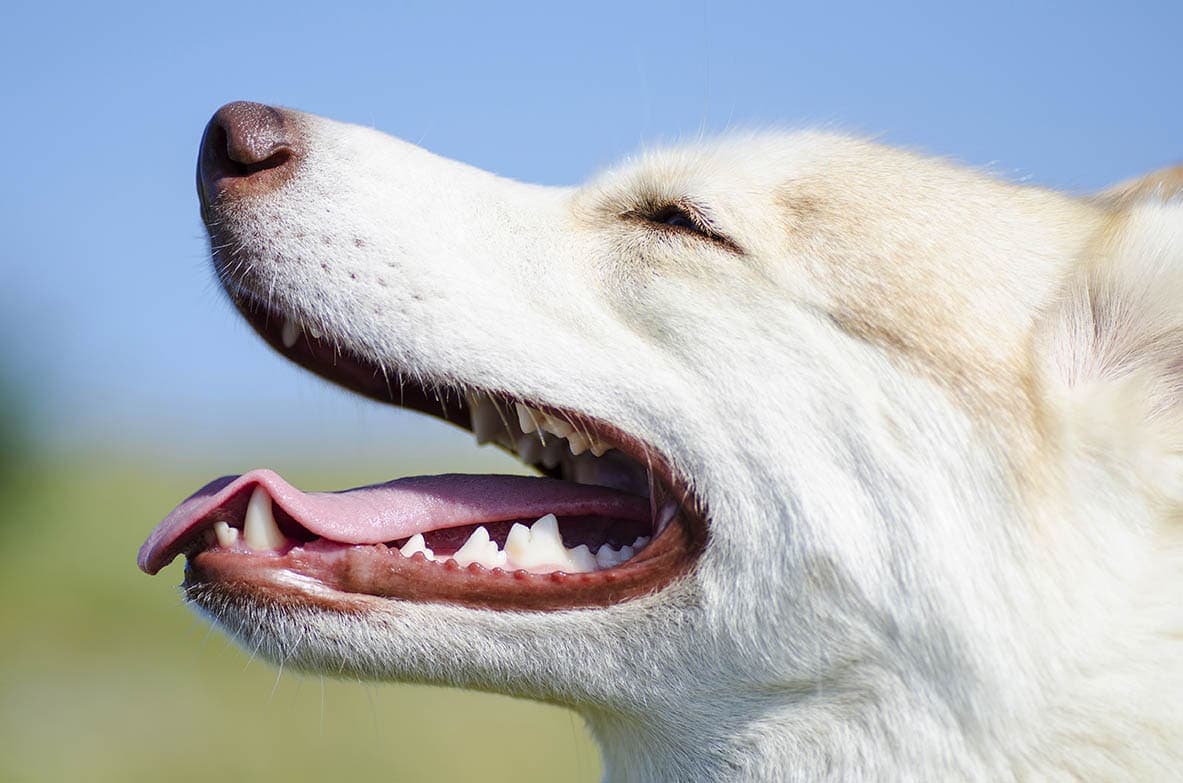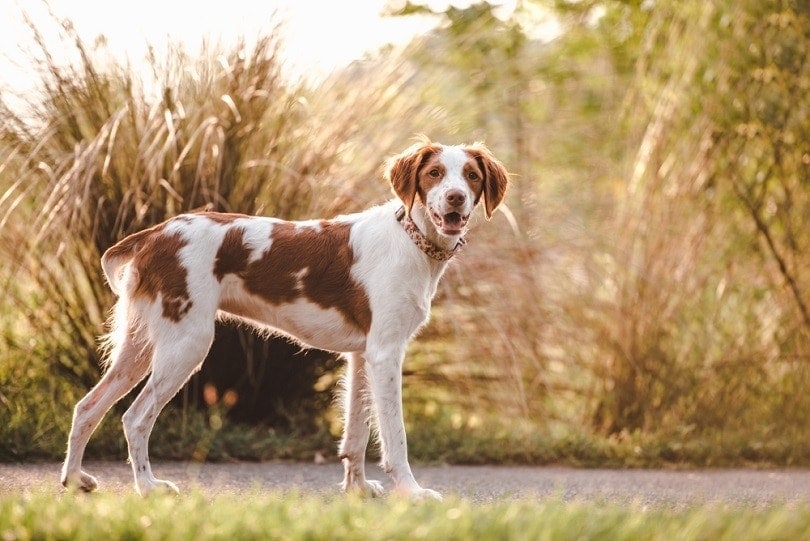Why Does My Pomeranian Pant So Much? 7 Vet-Approved Reasons

Updated on
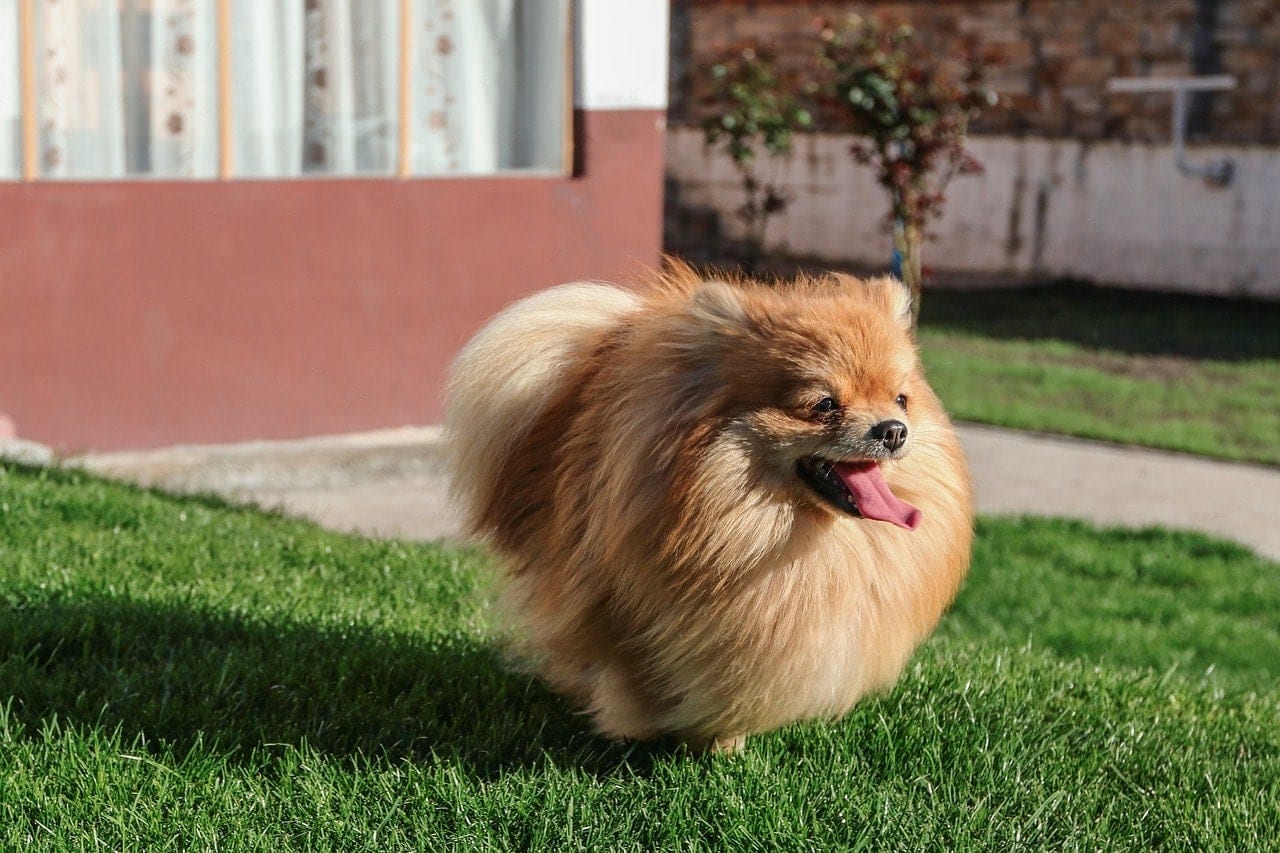
Pomeranians are excitable dogs that often pant when their owners first come home or they’re playing. However, sometimes heavy panting is a cause for concern, such as when your dog is resting or when the panting is accompanied by other symptoms.
Here are some reasons your Pomeranian may be panting a lot and the signs that you should visit the vet.
The 7 Reasons Why Your Pomeranian Pants So Much
1. Cooling Down
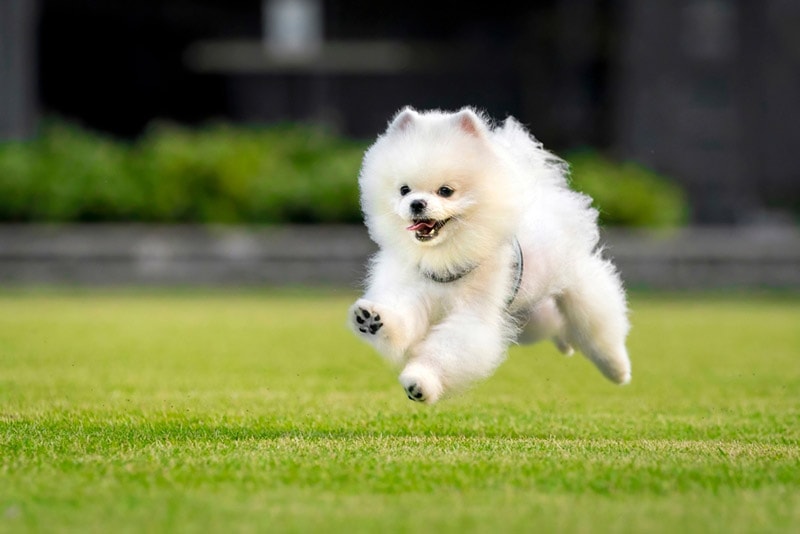
A very common reason for a Pomeranian (or any other dog) to pant is to cool themselves down. Pomeranians are very energetic and athletic dogs. They have thick double coats with a long topcoat and a compacted undercoat, which is designed to regulate their body temperature. That thick coat can lead to overheating if they’re playing in the hot summer sun, however. If it’s hot out and your dog is panting a lot, bring it into a cooler area to relax and offer some water.
Overheating is the stage before heatstroke. This condition can be life-threatening if left untreated. Here are some signs to look out for:
- Panting or rapid breathing
- Dry or sticky gums
- Bright pink to red lips and gums
- Drooling
- Lethargy
- Disorientation
- In severe cases: collapse and seizures
2. Excitement and Playing
Your Pomeranian will usually pant when they are excited and this is a normal behavioral response when something new is coming up or if they are having fun. Your dog’s body and facial expression can let you know that they are relaxed. It can be accompanied by a soft whine and jumping or running around.
3. Stress or Anxiety
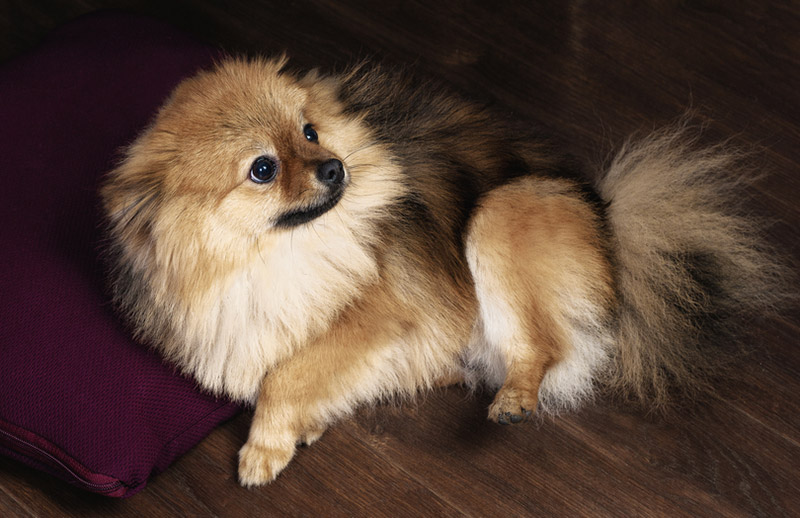
If your dog is stressed out, anxious, or fearful, that can cause them to pant excessively. The stress may have an obvious disruptive cause, like fireworks or a thunderstorm, or more of a prolonged situation that’s causing low-grade stress, such as moving, bringing home a baby, or introducing new pets to your home. You will notice other changes in their behavior and their body language that can indicate that your dog is not comfortable with the situation. Their tail might be tucked between their legs, they may lower their body or head with their eyes fully open with large pupils. Yawning, excessive lip licking, and pacing are also signs of stress.
In these moments do your best to comfort your dog and keep them away from the stressors. If you suspect that your dog is stressed, management with toys like lick mats, which relieve anxiety, and interactive games can help. If the stress is excessive, however, you may wish to work with a veterinary behaviorist to find a combination of training and medication that can help your dog cope with stress or anxiety.
4. Pain
If your dog is in pain, in discomfort, or feeling nauseous, panting is a common occurrence. Other signs of illness will be present such as vomiting, soft stools, changes in appetite, limping, or licking a certain body part excessively. Your veterinarian can assess whether your dog is panting because they are in pain by conducting a thorough examination and possibly diagnostic tests.
5. Fever
Since panting is a cooling mechanism for dogs, if your Pomeranian’s temperature rises due to fever, they may pant to help lower their body temperature. Fever will be accompanied by other signs of illness, just like when your dog is in pain. You may notice changes in appetite and demeanor, and your dog’s entire body will feel warm to the touch. If you suspect your dog has a fever, it is important to get them checked by your veterinarian as soon as possible.
6. Diseases
There are certain medical conditions that are linked to panting in your Pomeranian.
Collapsed Trachea
The trachea, or windpipe, is the tube that connects your dog’s throat to their lungs. The trachea is formed by small C-shaped cartilage rings and a thin membrane that together maintain the tube shape. A collapsed trachea is caused by the weakening of these structures and is a progressive disease that worsens as your dog ages. Your veterinarian will discuss the various treatment options, which include surgery, medical management, or both. Treatment can improve the signs and quality of life.
A collapsed trachea is often easy to spot. The symptoms may include:
In some cases, heavy panting can be a sign of a heart condition. Pomeranians are prone to patent ductus arteriosus, a heart defect present at birth that can cause irreversible heart damage. Eventually, patent ductus arteriosus can cause congestive heart failure. The symptoms of a heart problem include:
If your pet is on a medication like oral corticosteroids, panting can be a side effect from them. Medications like prednisone and prednisolone, two corticosteroids commonly prescribed for a variety of conditions, may cause panting in dogs. Be sure to speak to your vet if this is the case. Like other high-energy dog breeds, Pomeranians will often pant for no reason other than excitement. If your dog is running around and playing, looking happy with a wagging tail, and eager for more attention, it’s a normal response. However, if you notice your Pomeranian panting for no obvious reason, for example, while relaxing, lying down, sitting, or eating, take note of how frequently it occurs and how long it lasts. You can also record a video to show your vet. Also note the ambient temperature and whether the weather has gotten particularly warm because panting is the natural way dogs regulate their body temperature. Persistent panting that occurs when there’s no obvious cause, especially when accompanied by other signs, warrants a vet visit. For reference, the average respiration rate for a dog is between 20 - 40 breaths per minute. A good time to count the normal breathing rate is when your dog is asleep. If your Pomeranian is excited or playing in the heat, their respiration rate can go to 160 - 200 breaths per minute for a short period of time without a cause for concern. Pomeranians may pant a lot, especially when they’re running and playing. Sometimes, panting can be a sign of a health condition, such as overheating, a heart problem, a collapsed trachea, or excessive stress and anxiety. If you’re in doubt, be sure to contact your vet to discuss your concerns. Featured Image Credit: Валентин Симеонов, Pixabay
Heart Problems
7. Medication Side Effects
How to Tell When Panting Isn’t Normal
Conclusion


